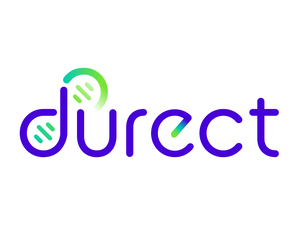DURECT Corporation Announces Outcome of FDA Advisory Committee Meeting for POSIMIR®
CUPERTINO, Calif., Jan. 17, 2020 /PRNewswire/ -- DURECT Corporation (Nasdaq: DRRX) today announced that the U.S. Food and Drug Administration's (FDA) Anesthetic and Analgesic Drug Products Advisory Committee (AADPAC) met yesterday to discuss the Class 2 New Drug Application (NDA) resubmission for POSIMIR® (bupivacaine extended-release solution). In a split vote on the key question, six advisory committee members voted to recommend that the efficacy, safety, and overall risk-benefit profile of POSIMIR support approval, while six did not support approval based on the information presented.
Although the FDA considers the recommendations of the AADPAC, the recommendations by the panel are non-binding. The final decision regarding pending regulatory actions for a product is made by the FDA.
"We appreciated this opportunity to present an in depth overview of our POSIMIR data and discuss it with the committee," stated James E. Brown, President and CEO of DURECT. "We are encouraged by the support from a number of the Committee members. We continue to believe the data meets all of the regulatory requirements and that the weight of the evidence supports approval. We look forward to working with the agency as it completes its review of the POSIMIR application."
About POSIMIR
POSIMIR is the Company's investigational post-operative pain relief depot product that utilizes DURECT's patented SABER® technology. POSIMIR is designed to be administered directly into the surgical site to deliver bupivacaine for up to three days after surgery. The FDA had previously assigned a user fee goal date of December 27, 2019; a new user fee goal date has not been assigned. POSIMIR has not been approved by the FDA for marketing in the U.S. for any indication.
About the POSIMIR Clinical Development Program
The POSIMIR clinical development program was designed to evaluate the safety and efficacy of a single dose of POSIMIR to treat post-surgical pain for up to three days.
In two completed adequate and well-controlled clinical trials, conducted in patients undergoing inguinal hernia repair and subacromial decompression (shoulder) surgeries, respectively, POSIMIR demonstrated a significant decrease in pain and opioid consumption over the 0-72 hour period following surgery as compared to placebo. DURECT believes that these completed trials support the safety and efficacy of POSIMIR in post-operative pain and meet the requirements to be considered pivotal clinical trials.
In all, the Company has completed 16 clinical trials in the POSIMIR program, involving over 1,400 patients, over 850 of whom received POSIMIR, with the remainder in control groups.
About DURECT Corporation
DURECT is a biopharmaceutical company actively developing therapeutics based on its Epigenetic Regulator Program and proprietary drug delivery platforms. DUR‑928, a new chemical entity in Phase 2 development, is the lead candidate in DURECT's Epigenetic Regulator Program. An endogenous, orally bioavailable small molecule, DUR-928 has been shown in preclinical studies to play an important regulatory role in lipid homeostasis, inflammation, and cell survival. Human applications may include acute organ injury such as AH and acute kidney injury (AKI) and chronic hepatic diseases such as NASH. DURECT's advanced oral and injectable delivery technologies are designed to enable new indications and enhanced attributes for small-molecule and biologic drugs. Key product candidates in this category include POSIMIR® (bupivacaine extended-release solution), an investigational locally-acting, non-opioid analgesic intended to provide up to 3 days of continuous pain relief after surgery, and a long-acting injectable SABER-based HIV investigational product being developed with Gilead. For more information about DURECT, please visit www.durect.com.
DURECT Forward-Looking Statement
The statements in this press release regarding the potential FDA approval of POSIMIR and use of POSIMIR to treat post-operative pain, the potential benefits and uses of DUR-928 to treat acute organ injury such as AH and AKI and chronic hepatic diseases such as NASH, and the potential development of a long-acting injectable SABER-based HIV product with Gilead are forward-looking statements involving risks and uncertainties that can cause actual results to differ materially from those in such forward-looking statements. Potential risks and uncertainties include, but are not limited to, the risk that the FDA will not approve POSIMIR or if it does approve POSIMIR's use, that it will materially restrict its label, the risk of delays in clinical trials or adverse safety events from patients administered with DUR-928, the risk that the ongoing clinical trial of DUR-928 in NASH does not successfully achieve its endpoints, the risk that placebo controlled studies of DUR-928 required for regulatory approval will not replicate results from open label clinical trials or trials with small numbers of patients or historical controls, the risks that the long-acting injectable SABER-based HIV investigational product being developed with Gilead will not succeed or that Gilead will abandon or deemphasize this program, and the risk of delays and costs due to additional work or other requirements imposed by regulatory agencies for continued development, approval or sale of any of our product candidates. Further information regarding these and other risks related to DURECT is included in DURECT's Form 10-Q filed on November 5, 2019 under the heading "Risk Factors" and in subsequent reports that we file with the Securities and Exchange Commission.
NOTE: POSIMIR® and SABER® are trademarks of DURECT Corporation. Other referenced trademarks belong to their respective owners. DUR-928 and POSIMIR are drug candidates under development and have not been approved for commercialization by the U.S. Food and Drug Administration or other health authorities.
SOURCE DURECT Corporation

Related Links
WANT YOUR COMPANY'S NEWS FEATURED ON PRNEWSWIRE.COM?
Newsrooms &
Influencers
Digital Media
Outlets
Journalists
Opted In




Share this article